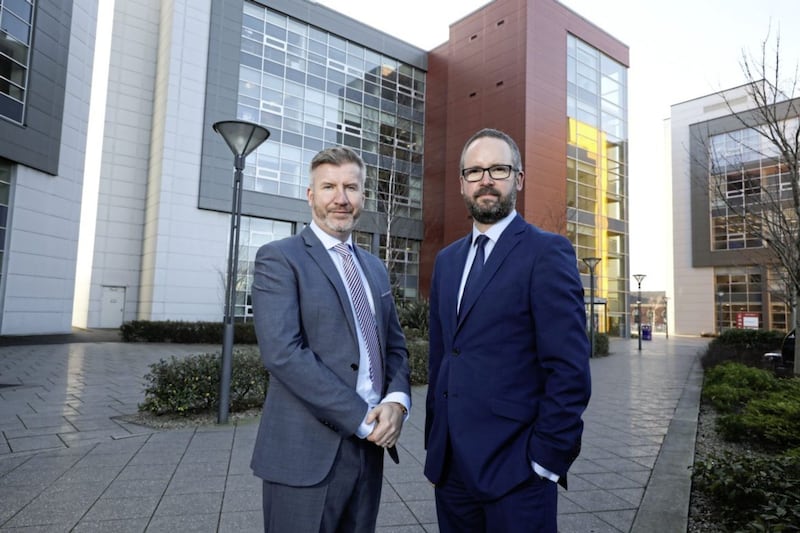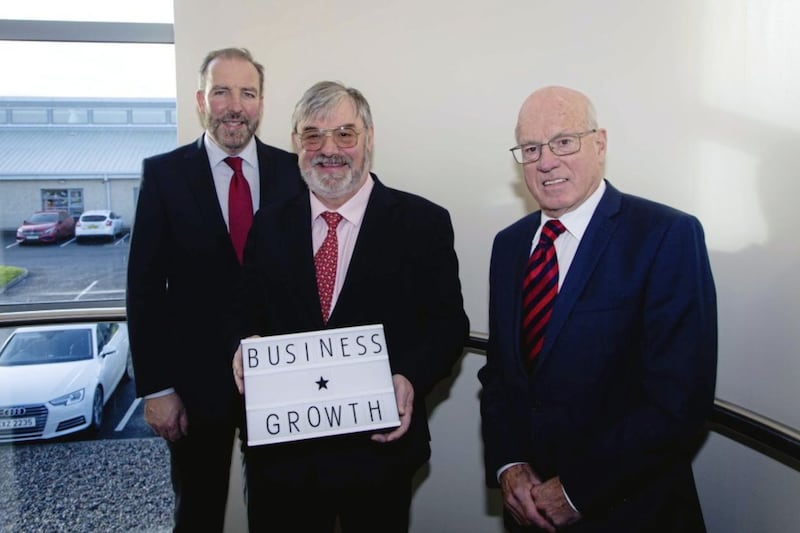MORE than 420,000 jobs are at risk of automation in Northern Ireland in the next 10 years, a hard-hitting new report is predicting.
And to help counter that, the region must create 80,000 high-value "knowledge economy" jobs by 2030 and produce better products than anyone else in the world.
The report says the north's knowledge economy - made up of sectors like pharmaceuticals & biotechnology, telecoms, digital media, computing & advanced electronics, aerospace, medical devices and IT services - is the second fastest growing in the UK behind Scotland.
But to survive as a modern economy, a "radical reboot" is required to stave off automation, one of the biggest external forces changing the working environment in the 21st century.
Virtually every existing job in occupations like keyboard operators, bank and post office clerks, retail cashiers/check-out operators and electrical and electronic products assembly could go, it's been claimed.
"Northern Ireland is at a fork in the road," according to Steve Orr, director of Connect at Catalyst Inc, which has produced the 2017 Knowledge Economy Report.
"We either seriously invest in and build further on the foundations of a knowledge economy that has been established in the last few years, or we drift with small incremental progress but an overall economy that declines
"There was always going to come a moment when we, as a people, are tested to see if our actions mark the ambition of our vision, and that moment is now.
"Automation will either be a massive opportunity or a big threat to Northern Ireland. If we take the hard decisions now and back ourselves, we could become one of the top knowledge economies in the world, the benefits of which will flow to each and every citizen."
He added: "It is up to each of us: business owners, entrepreneurs, government officials, elected officials, school principals and parents, to ask: ‘Is what I am planning to do going to enable us to thrive in this new world’?
"The more of us who answer ‘yes’, the brighter our futures will be."
The report, produced for Catalyst by the Ulster University Economic Policy Centre, specifically looked at the potential impact of automation, and estimates that as many 423,000 jobs in the north will be affected in the next decade alone, which Mr Orr insists should be "a significant wake-up call for everyone".
He added: “The strength of our knowledge economy cannot be allowed to wither because we do not act on a well-indicated slowdown, particularly when re-focusing investment on automation and robotics will boost competitiveness and secure more jobs in the long term.
“A major re-think is also required on how we prepare our young people for work, since 65 per cent of today’s primary school children will go on to jobs which don’t currently exist.
"We have to look closely at the skills which support employment in this age of technology, such as complex problem solving, fluency of ideas, critical thinking and resilience.”
Richard Johnston, associate director in the Ulster University Economic Policy Centre and lead researcher on the report, said: “These findings showed that knowledge economy activity growth was strong following the recession, but the rate of growth was beginning to slow.
"Automation won’t wait for Northern Ireland and therefore reinvigoration, refocussing and action is required if we are to translate activity into tangible economic outcomes.”
As a first step the Future of Work in NI Solutions Summit on February 28, organised by Connect at Catalyst Inc, puts some of the world’s expert speakers on the impact of automation, in front of SME business leaders, academics and policy makers, and offers examples of local leaders in the application of automation, including companies such as Coca Cola, Moy Park, Deloitte and Liberty IT.
Jobs at the highest risk of automation in Northern Ireland:
:: Typists and related keyboard occupations - 99 per cent
:: Bank and post office clerks - 98 per cent
:: Retail cashiers and check-out operators - 97 per cent
:: Assemblers (electrical and electronic products) - 94 per cent
:: Sewing machinists - 89 per cent
:: Personal assistants and other secretaries - 85 per cent
:: Postal workers, mail sorters, messengers and couriers - 80 per cent
:: Metal machining setters and setter-operators - 79 per cent
:: Business sales executives - 60 per cent








